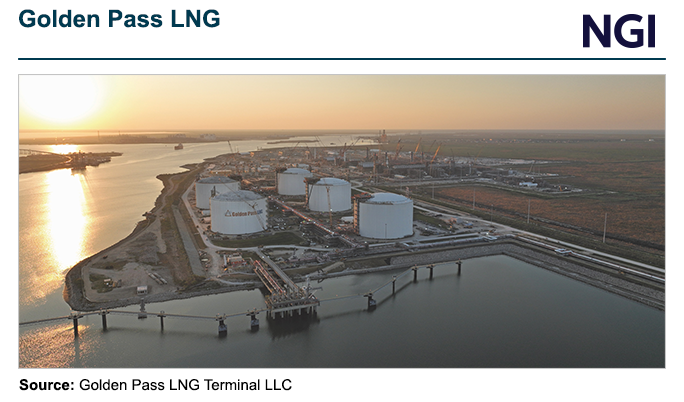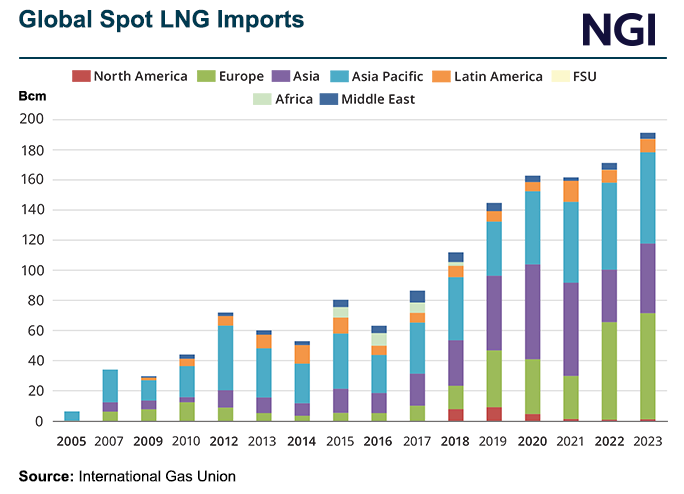EQT Corp., the largest natural gas producer in the United States, will continue to curtail Appalachian volumes through the second half of the year in light of surplus storage levels, executives said Wednesday.

During the second quarter conference call, CEO Toby Rice and CFO Jeremy Knop said the longer-term outlook for the Appalachian pure play is solid. For now, though, the executive team is focused on reducing Appalachian gas storage levels, which have failed to moderate on flat prices and industry curtailments.
EQT began curtailing about 1 Bcf/d in late February, or around 180 Bcfe, Knop reminded analysts. Through the second half of this year, EQT expects to hold back an average of 90 Bcfe, or around 500 MMcf/d.
[In the Eye of the Storm: North American LNG project developers continue to grapple with the Biden administration's pause on non-FTA permits. Has the pause given impetus to other projects? How are Mexico LNG projects advancing? Tune in to hear from LNG industry analyst Sergio Chapa in the latest episode of NGI's Hub & Flow.]
“While the pace of eastern storage builds has moderated, absolute storage levels remain high on the back of warm winter weather last year, thus pressuring Appalachia pricing this year,” Knop told analysts.
“In response to market fundamentals, we continue to tactically curtail production, including over the past weeks, and expect to continue this tactical curtailment program during the upcoming fall shoulder season,” the CFO said. “To this end, our second half 2024 production guidance assumes 90 Bcfe of anticipated curtailments, which should have a meaningful impact on both eastern and total U.S. storage levels.”
In the latest inventory report, the U.S. Energy Information Administration reported East region stocks stood at 686 Bcf as of July 12, which is about 16% above the five-year average. Total storage stood at 3,209 Bcf, about 17% above the five-year average.
MVP Support
The ramp-up in June of the Mountain Valley Pipeline LLC (MVP) system “should provide support to Appalachian differentials moving forward,” Knop noted. During the second quarter, EQT retook ownership of Equitrans Midstream Corp., which operates MVP. The 2 Bcf/d system is poised to play an integral part in the Pittsburgh independent’s plans to meet future gas demand.
Knop explained why MVP could make a substantial difference in future Appalachian gas prices.
“To put MVP’s impact in context, assuming MVP flows at just half of its capacity on average for a year, that implies 300-400 Bcf of gas that otherwise would end up in eastern storage that now will be directed to the Southeast demand centers,” the CFO said.
“Given total maximum eastern storage is roughly 975 Bcf, MVP flows represent a material and structural shift in local supply and demand fundamentals, which in turn, should help tighten local basis over the coming years.”
Now that MVP is online, Knop was asked if other Appalachian gas producers had begun to increase activity.
“This is actually something really exciting that we’ve been pleasantly surprised by,” Knop said. “On the production side, we have not seen any reaction…Production continues to be flat, consistent with our expectations.
“What has surprised us, though,” is the end market, he said. With regard to Transco Zone 5 St. 165 pricing, where EQT is selling gas, “we’ve modeled it around a 20-cent premium differential” to Texas Eastern M-2 pricing.
“We have seen pricing recently average 50-70 cents above, so it’s significantly higher than what we have assumed,” the CFO said. “And there have been periods of time where it’s well north of $1 above M-2…And so I think we've been really encouraged by how much gap the market has been taking. Part of it has been impacted by some some maintenance” on Transco, aka the Transcontinental Gas Pipe Line Co. LLC system.
“But I think – for it being a midsummer period – seeing that demand and that premium price already show up, I think is an awesome, really early sign marker,” Knop said. “I think that the benefit we might see in winter periods could be even better as well, and certainly better than maybe what we have forecasted. But it’s still early…
“So we’re watching, like everybody else, to see how that develops. But I think all signs are pointing to a really positive direction on that.”
Knop explained that “between MVP, coal retirements and organic load growth, we see implied Appalachia demand approaching 41 Bcf/d by 2030, compared with 35-36 Bcf/d of current basin supply…”
EQT signaled in April that plans were on the table to expand MVP in part to handle data center growth. However, don’t expect data center growth to make an impact on gas demand any time soon.
“I think the key thing we’re watching probably going into year end is production,” Knop said. “I think this number hovering around 102 Bcf is a healthy number,” he said of current production. “But if you see a surge into winter again, if other producers turn on a lot of volume, I think we are watching for that, because that could be a near-term headwind to price…I think, at most, that would impact the first half of 2025.”
Natural gas demand should jump toward the latter half of the decade on the back of data center expansions linked to artificial intelligence, the executive team said. Exports sending gas overseas and to Mexico markets should climb too as more LNG terminals open on the Gulf Coast.
LNG Exports? A Moving Target
How much gas would be needed for new and expanded liquefied natural terminals on the Gulf Coast remains in flux. Knop pointed to the moving start date for the Golden Pass LNG Terminal LLC project on the Texas coast.
The near term “is really a story of production and a story of LNG,” Knop said. “I don’t, beyond that, see any sort of step change benefits, necessarily, in 2025 that are going to move the needle nearly as much as those two factors.”
For now, EQT wants to reintegrate Equitrans into the mix. Some analysts questioned EQT’s reasoning to buy a regulated entity. Rice said the system is key for EQT’s long-term strategy.
“I’d say, at a very high level, what we’re doing here at EQT is creating a culture that is going to be able to pick up every penny, nickel and dime, within our operating footprint,” he told analysts. “And one of the ways that we can drive opportunity value creation is to expand the size of the operational footprint…”
Incorporating a big commercial transmission system back into the company “is going to make it a little bit easier for us to identify and capture some of those opportunities.”
Knop said those factors “should translate to better local pricing and present a sustainable growth opportunity for EQT at some point in the coming years, given we have the deepest, highest quality inventory of any operator in the basin.”
Asked about how EQT would determine when it needs to shut in gas, Knop said, “If we can make money selling gas, we wouldn’t curtail anything, obviously. But our assumption right now is that the majority of those curtailments probably take place in September and October.”
Over the past week, EQT has curtailed “not quite up to a 1 Bcf/d level. But we do, on a very dynamic basis, optimize realized pricing to make sure that we’re optimizing value creation and not just giving our product away for price where we can’t make money. And that’s what we'll continue to do.”
Texas LNG Offtake
EQT is not slowing down its outreach to LNG markets. Late Tuesday, Texas LNG Brownsville LLC said it had executed a 20-year tolling agreement with EQT for 2 million metric tons/year (mmty). The Glenfarne Energy Transition LLC subsidiary has a 4 mmty export project underway on the border of Texas and Mexico.
The agreement solidified a heads of agreement (HOA) signed earlier this year.
“Converting our HOA with Texas LNG to a definitive tolling agreement brings us one step closer to unleashing EQT’s reliable, low emissions natural gas on the global stage,” Rice said. “We stand ready to deliver supply to growing LNG markets, helping to strengthen energy security and reduce global emissions via foreign coal displacement.”
Texas LNG noted that it has secured offtake agreements for most of the project’s remaining offtake. The agreements include a 0.5 mmty agreement earlier this month with an undisclosed party.
EQT sales volumes in 2Q2024 averaged 508 Bcfe, compared with 471 Bcfe in the year-ago quarter.
Net profits totaled $10 million (2 cents/share) in the second quarter, reversing year-ago losses of $67 million (minus 18 cents).







